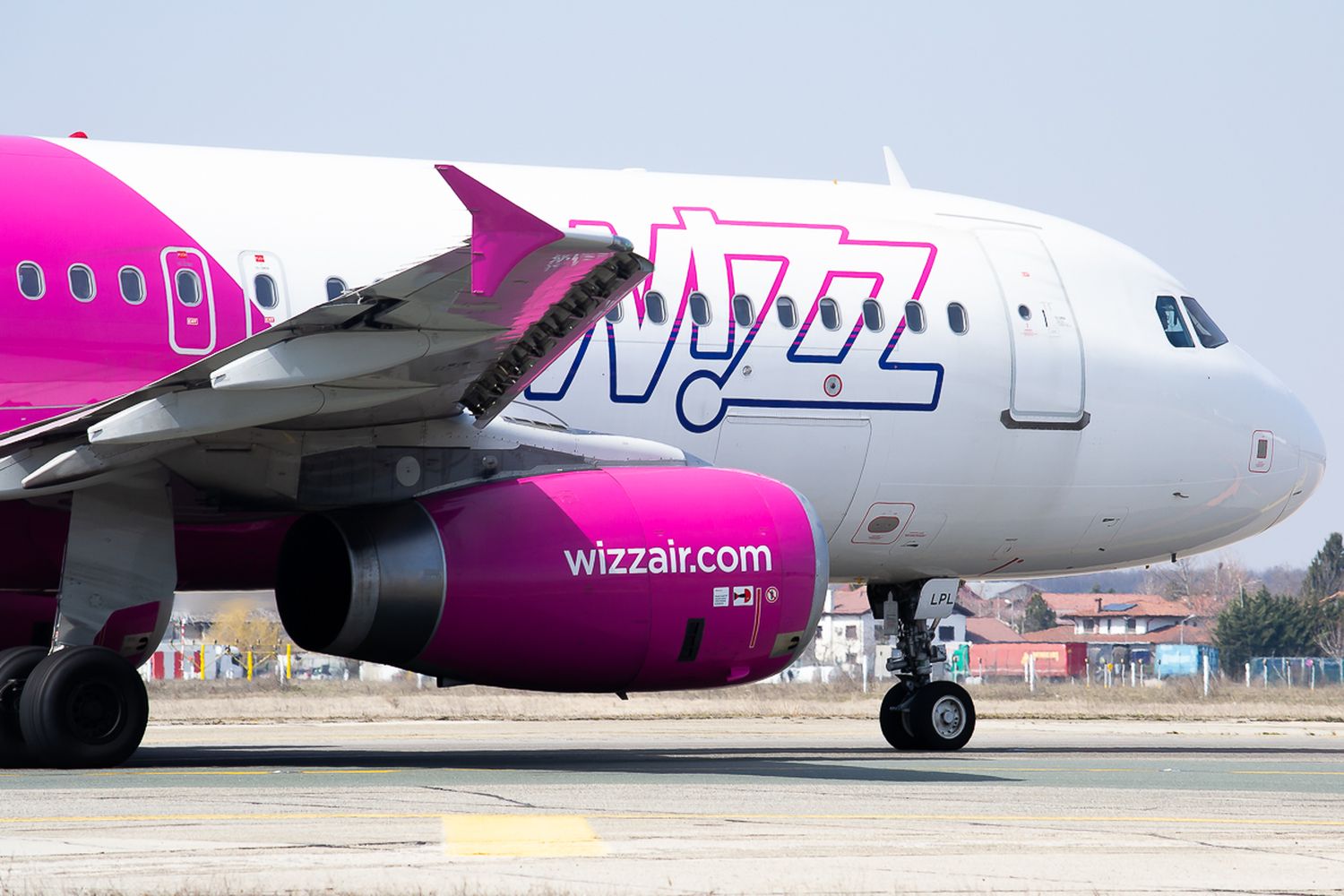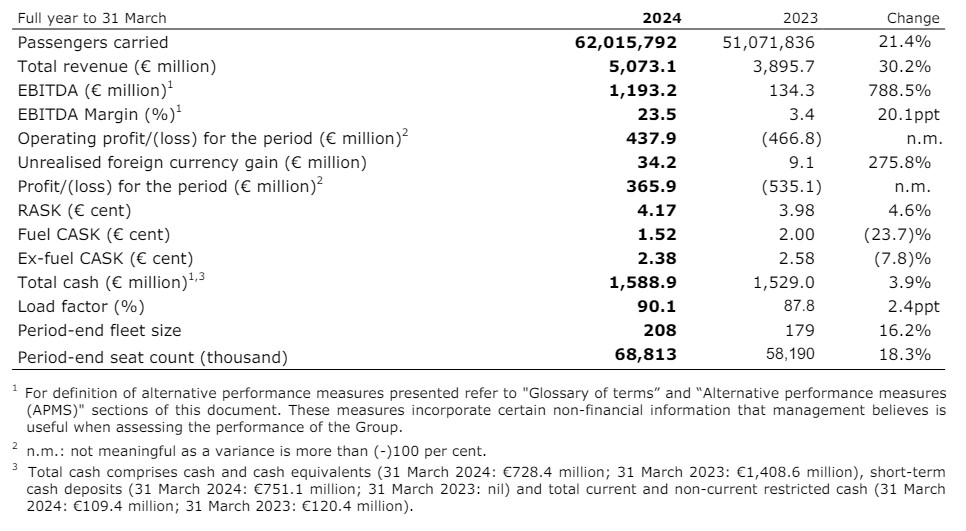Wizz Air Reports Strong Return to Profitability in Fiscal Year 2024
Wizz Air announced its unaudited financial results for the fiscal year ended March 31, 2024, marking a significant return to profitability and showing notable improvements in several financial and operational indicators, which comes as just a few days ago marked 20 years since its first scheduled flight, which was on the route between Katowice and London-Luton.
In fiscal year 2024, Wizz Air transported a record 62.0 million passengers, a 21.4% increase compared to the 51.1 million the previous year. Total revenue rose by 30.2% to €5,073.1 million, up from €3,895.7 million in 2023. The company reported an EBITDA of €1,193.2 million, a significant increase of 788.5% compared to €134.3 million the previous year, with an EBITDA margin of 23.5%, an improvement of 20.1 percentage points.
Operating profit for the period was €437.9 million, contrasting with an operating loss of €466.8 million in 2023. Additionally, Wizz Air reported an unrealized foreign currency gain of €34.2 million, up 275.8%. Net profit was €365.9 million, compared to a net loss of €535.1 million the previous year.
Wizz Air achieved improvements in asset utilization and punctuality. The utilization of the operating fleet increased to 12:25 hours per day compared to 11:08 hours the previous year. Punctuality also improved, reaching 65.3%, up from 56.2% in the previous fiscal year.
Demand (in RPK) grew 26.7%, while capacity grew 24.5%, resulting in an occupancy factor of 90.1% (+2.6 pp).
The company experienced a decrease in cost per available seat kilometer (CASK) of 14.8%, with a reduction of 23.7% in fuel CASK and 7.8% in ex-fuel CASK.
«Sustained healthy demand for air travel across our markets was a defining feature of fiscal 2024, signaling that the surge witnessed post-pandemic has evolved into a longer-term trend in consumer behavior. Wizz Air has been strongly positioned for this trend, as reflected in our performance for the year,» said Wizz Air CEO József Váradi.
The company also faced significant challenges during the year, including supply chain disruptions due to mandatory engine material inspections affecting its neo aircraft fleet. Despite these challenges, Wizz Air’s workforce of over 8,000 employees delivered exceptional service, reflected in operational, financial, and people metrics.
During fiscal year 2024, its network reached 193 destinations in 53 countries, with 33 operating bases and 8,000 employees.
Outlook and Expectations
Commenting on the outlook and current trading for the company, Váradi added: «While some of the external challenges we experienced throughout fiscal 2024, including groundings due to GTF engine inspections and geopolitical instability, are expected to persist in the coming year, we have proven that our model is agile, highly resilient, and well positioned to mitigate the impact of these ongoing issues.»
The company expects capacity projections for fiscal year 2025 to be flat year-on-year, with a load factor of 92%. Revenue per available seat kilometer (RASK) is expected to increase by high single digits year-on-year, and ex-fuel CASK is also expected to rise by high single digits. Projected net income for fiscal year 2025 is in the range of €500-600 million.
After closing fiscal year 2024 with 208 aircraft (40 A320ceo, 6 A320neo, 41 A321ceo and 121 A321neo), for this year Wizz Air expects to add 27 A321neo, including the first A321XLR and three A320ceo on dry lease, while 9 A320ceo will be retired, bringing the total fleet to 229 aircraft. The low-cost carrier’s total order book consists of 13 A320neo, 266 A321neo and 47 A321XLR.
Despite the positive numbers, Barclays analysts quoted by the Wall Street Journal cast doubt that the result was driven by around 530 million euros in miscellaneous financial gains such as those from supplier compensation and fuel costs, and that Wizz Air «does not have clear guidance on future gains from sale and lease back operations or offsets, and being somewhat opaque about what was included in FY24, it is very difficult to model the underlying business with confidence».



Para comentar, debés estar registradoPor favor, iniciá sesión